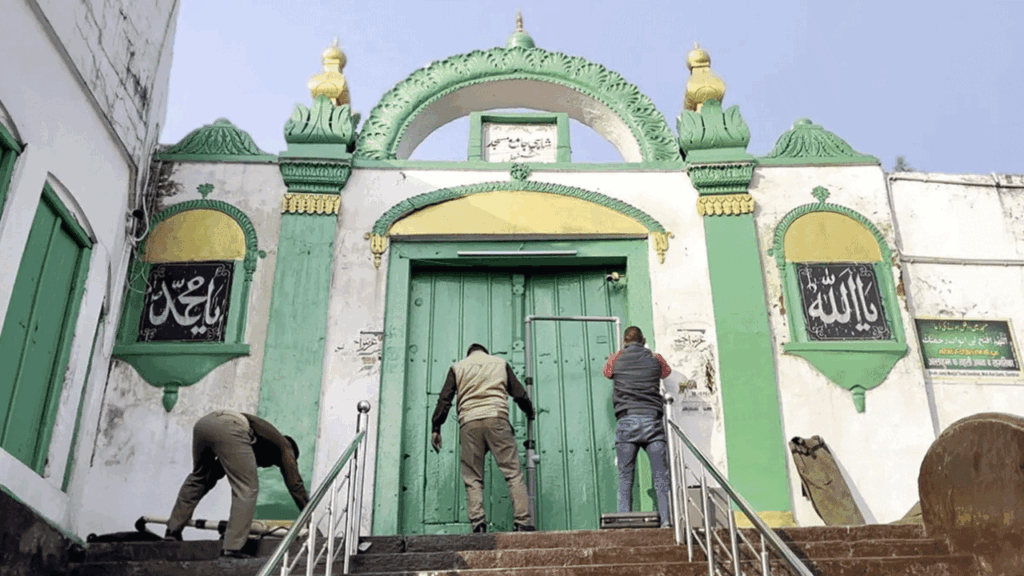Prayagraj, UP:- In a significant verdict which may set a precedent for parallel dispute, the Allahabad High Court on Monday affirmed the trial court order on the survey of Shahi Jama at Sambhal Masjid . The court ruled in favour of the polluters when it dismissed a prayer seeking to require the survey, arguing that the land is merely a “protected monument” and that Hindu plaintiffs could not ask for a change of religious character.
Which was upheld by the High Court under a petition filed by the Management Committee of Shahi Jama Masjid that had sought to quash a Sambhal civil judge court order passed in November 2024 directing an Advocate Commissioner to conduct a survey on the Mosque premises. The suit had been filed by Hindu plaintiffs alleging that the mosque was built in 1526 on the site of an ancient Harihar temple of Kalki, the last avatar of Vishnu, that was constructed only after the demolition of a much older temple by Mughal emperor Babur. The mosque committee, however, posted that the suit lies outside the ambit of the 1991 Act as part of PWP that prohibits conversion of a place of worship and preserving religious character based on how it stood on August 15, 1947.

Justice Rohit Ranjan Agarwal, upholding the order of the trial court, has also observed that the suit of Hindus is “not bona fide barred” by the 1991 Act from being filed. The court laid down that the religious structure in question is a protected monument defined in 1920 under the Ancient Monuments Preservation Act, 1904, which was subsequently amended by the Ancient Monuments and Archaeological Sites & Remains Act, 1958. “There is no question of any changing of the character of the place of worship or conversion of one into another, as is the lot of this case. The High Court further noted that ” plaintiffs are only attempting to access a protected monument declared in 1920 as under Section 18 of the Act of 1958,” said upon 45-page order.
Also check:- Ashoka University Professor in Lockup: Colleagues Keep Vigil at Rai Police Station
The decision opens the civil suit, with the survey report having been filed into a closed causebook in the trial court. As it is similar to the conflict over the Gyanvapi Mosque in Varanasi and the Shahi Eidgah Mosque of Mathura, the case has received national prominence. While the first attempt at a survey in November 2024 had triggered violence between Hindus and Muslims in Sambhal, leading to an interim stay of trial court proceedings till the High Court dealt with a suo motu challenge by the mosque committee. This judgment by the latest High Court in India signifies a major milestone for historical religious sites in current contemporary legal talks.

